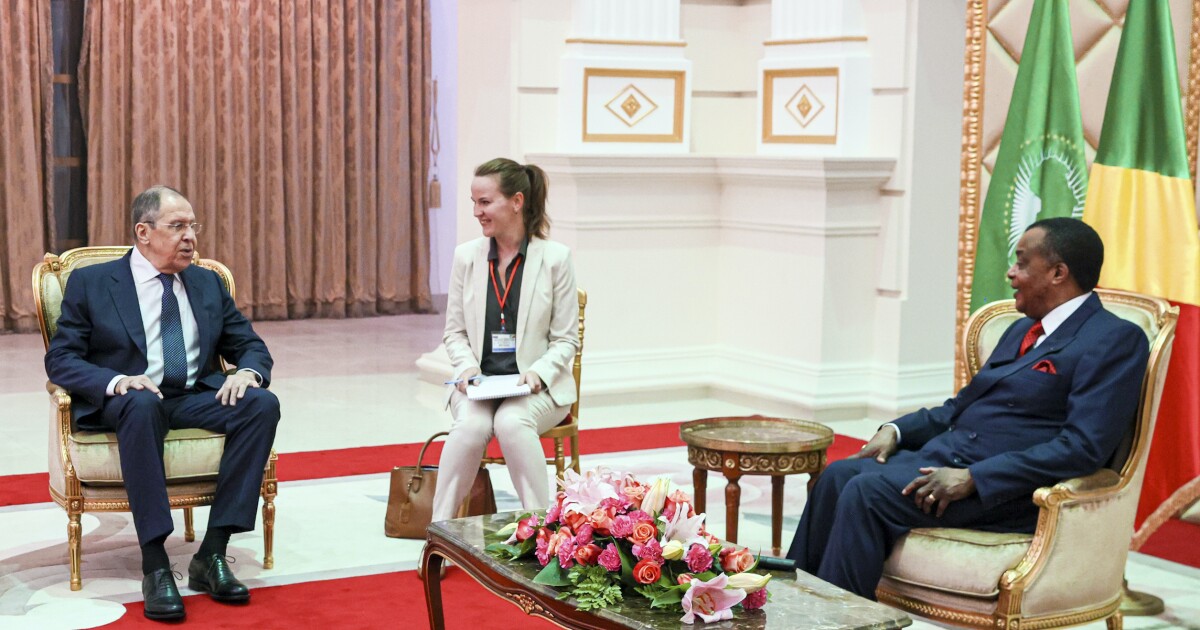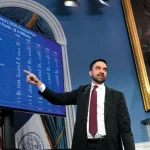

Secretary of State Antony Blinken’s team dismissed Russian claims that Western sanctions have exacerbated the global food crisis as Moscow hopes to convert the controversy into a political advantage in the developing world.
“The fact is that we have been very specific in designing this sanctions regime to see to it that food and fertilizer from Russia is entirely exempted, to see to it that companies around the world have the assurances that they need to export these products,” State Department spokesman Ned Price told reporters.
Russian Foreign Minister Sergey Lavrov has insisted that Western sanctions architects developed measures to interfere with the logistics of Russian food and fertilizer exports, even as the products themselves remain free of sanctions. He acknowledged that Moscow has used Ukraine’s blockaded grain as leverage in this dispute while characterizing the war in Ukraine as a conflict over “the future of the world order,” one that Moscow hopes will undercut the primacy of “Western civilization” in global affairs.
“It will take a long time, but we are at the beginning of a new era, which would be a movement towards real multilateralism, not to the multilateralism which the West tries to impose on the basis of the exceptional role of the Western civilization in the modern world,” Lavrov said in Cairo during an address to the Arab League, a bloc of Arabic-speaking nation across Africa and the Middle East. “The world is much richer than just Western civilization. Who but not many of you representing the ancient civilizations should know this.”
UKRAINE HOPES TO RESUME GRAIN EXPORTS IN COMING DAYS AFTER STRIKE HIT ODESA
Lavrov touted the prospect of sidelining the American dollar in global transactions as a way to hasten that process and not “be dependent on the capricious behavior of the United States and its allies.” He cited the European Union’s recent decision to write an explicit exception for “the purchase, import or transport of agricultural and food products, including wheat and fertilizers” to argue that Western allies have lied about their culpability for the food crisis.
“True, no sanctions have been imposed on food as such, but they were instantly imposed on the companies that provide insurance for food deliveries and ensure the corresponding payments,” he told reporters in Cairo before acknowledging that Russia tied the negotiations over Ukrainian food exports to this dispute. “In the end, we insisted that the two issues be resolved as a package.”
The fragility of the “package” deal signed Friday became apparent on Saturday, when Russia conducted strikes on the port of Odesa. Lavrov insisted Monday that such attacks remain permissible under the terms of the agreement.
“In Odesa, there is nothing in … the agreements signed on July 22 in Istanbul that can bar us from continuing the special military operation and hit military infrastructure and other military targets,” Lavrov said while traveling in the Democratic Republic of Congo. “As for the targets hit by high-precision weapons, they are located in a separate part of the Odesa port, the so-called military part.”
Former Russian President Dmitry Medvedev, who remains a senior government official, said in May that “our food is our quiet weapon” in the war.
“Moscow’s track record when it comes to previous deals that it has struck is not exactly a cause for optimism,” Price told reporters Monday. “It harkens back to what we heard and what we saw from Russia, in the context of the humanitarian corridors that were to have been open for evacuations of civilians and others from besieged cities. In some cases, those humanitarian corridors were open for just a few days, or in some cases just a few hours, before Moscow appeared to renege on its agreement.”
The blockade of the Black Sea ports has raised the specter of a dire food crisis in Africa, according to U.N. officials. “This is not just about Ukraine, this is about the global food supply of the entire world,” U.N. World Food Program Executive Director David Beasley, a former politician from South Carolina, told the House Foreign Affairs Committee last week. “We buy at the World Food Program 50% of our grains from inside Ukraine. So you can imagine the impact it has on the World Food Program alone.”
The controversy over food security and the ideological significance of the war reflects the terms of geopolitical debate in Africa, where many impoverished countries depend upon Ukrainian food exports and also have a strong memory of Western European colonialism. Russian President Vladimir Putin played on that historic context ahead of Lavrov’s trip by arguing that the U.S. alliance network is “racist and neocolonial in its essence.”
Price countered by citing Putin’s statement following an event commemorating “Peter the Great: the Birth of the Empire” — that he is following Czar Peter’s example in trying to “return and reinforce” Russian control over the territory of modern Ukraine.
CLICK HERE TO READ MORE FROM THE WASHINGTON EXAMINER
“The Russians have become some of the best debunkers of their own lies, of their own propaganda,” the State Department spokesman said. “They’re now telling the world what has been clear for some time, that this is nothing more than a war of territorial conquest.”






